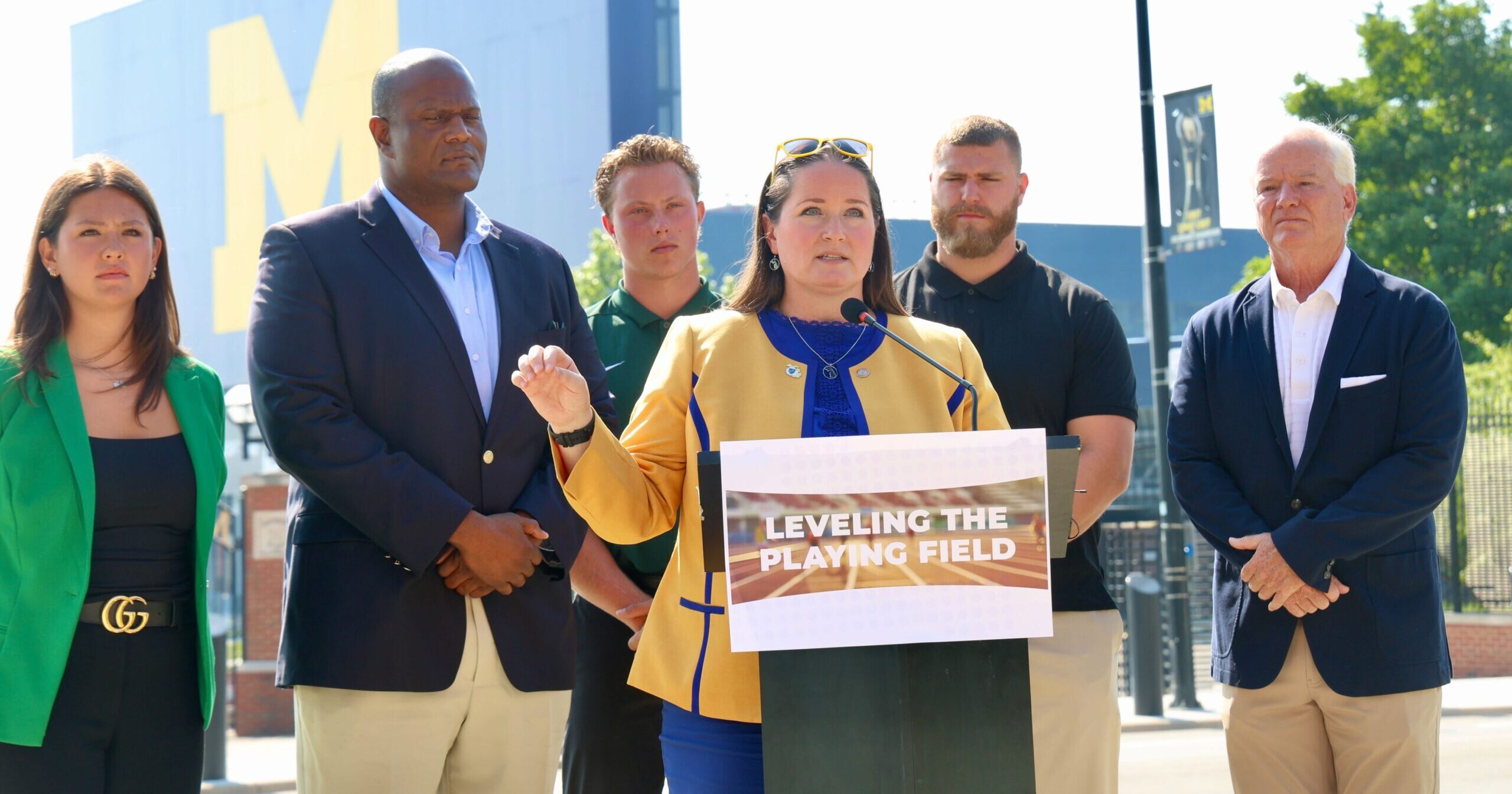Photo: State Rep. Carrie Rheingans speaks about her bill to define student athletes as employees with collective bargaining rights. Behind her are (left to right): Michigan State softball player Brit Beshears, state Rep. Joe Tate, Michigan State baseball player Parker Picot, Michigan State football player Maverick Hansen, and Dr. Tom Dieters.
|
ANN ARBOR, Mich., July 8, 2025 — State Reps. Carrie Rheingans (D-Ann Arbor) and Joe Tate (D-Detroit) announced two new bills today that are designed to strengthen the rights of college student-athletes in Michigan. The legislation aims to guarantee student-athletes’ ability to collectively bargain for fair pay and working conditions (Rheingans’ HB 4725) and to fully benefit from their name, image, and likeness (NIL) without interference (Tate’s HB 4643). “Student-athletes are not just players; they are hardworking individuals who dedicate immense time and effort to their sports while helping generate millions of dollars for their universities,” Rheingans said. “My bill ensures these athletes have the right to organize and negotiate for basic protections like health care, safety and fair compensation. Given the recent NCAA and federal labor rulings, now is the time to level the playing field and make sure that students’ voices are leading the way in how they are treated and compensated.” The bills respond to recent changes in NCAA policies and federal labor rulings, which have created uncertainty around athletes’ rights to unionize and receive compensation. HB 4725 clarifies student-athletes’ status as employees with collective bargaining rights, while HB 4643 ensures athletes can freely pursue NIL deals without restrictions from the NCAA, universities, or other third parties. “As a former collegiate athlete and NFL player, I know the sacrifices student-athletes make on and off the field,” Tate said. “My bill guarantees Michigan student-athletes the freedom to capitalize on their personal brand without unnecessary interference. They deserve dignity, independence and the ability to control their own opportunities.” Dr. Tom Dieters, an expert on NIL and college sports added, “Michigan’s bills are a crucial step forward to ensure athletes get fair market compensation without caps or limits imposed by the NCAA. This legislation empowers student-athletes and supports a more equitable sports environment.” The bills are now moving through the Michigan Legislature, with lawmakers committed to advancing policies that protect student-athlete rights and promote fairness in college athletics. ### |

